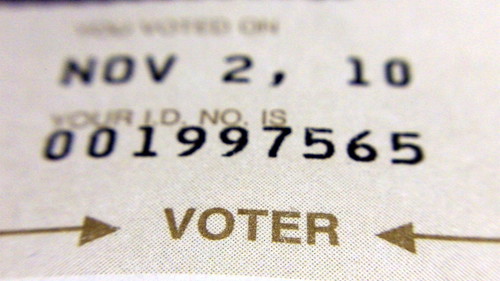May 29th, 2011 by Steven Roy Daviss, M.D. in Research
No Comments »




 You know that 1979 Boomtown Rats song, “I Don’t Like Mondays.” (This Youtube music video features a very young-looking Bob Geldof.) The song is about the 1979 shooting spree on a Monday morning at a San Diego elementary school. The shooter’s only state reason for doing it was that she didn’t like Mondays.
You know that 1979 Boomtown Rats song, “I Don’t Like Mondays.” (This Youtube music video features a very young-looking Bob Geldof.) The song is about the 1979 shooting spree on a Monday morning at a San Diego elementary school. The shooter’s only state reason for doing it was that she didn’t like Mondays.
The silicon chip inside her head
Gets switched to overload
And nobody’s gonna go to school today
She’s gonna make them stay at home
It turns out that — contrary to popular impression that Mondays are the worst day of the week — Tuesdays are the worst day of the week. According to a piece by Chris Hall (@hallicious) on HealthCentral, Tuesdays are the worst day of the week (moodwise) while Sundays are the best. This is based on mood rating scores from 500 users of the Mood 24/7 service, which HealthCentral licenses from Johns Hopkins University. After you sign up for the free service, the software sends you a text message at random times, and you text back your mood rating for that day.
So, you’d think that the latest date of the coming apocalypse, October 21, might be on a Tuesday. But it’s not — it’s on a Friday. Maybe it will get moved again.—–
*This blog post was originally published at Shrink Rap*
May 5th, 2011 by Steven Roy Daviss, M.D. in Health Policy, Opinion
No Comments »



 The White House released its plan last week entitled “Epidemic: Responding to America’s Prescription Drug Abuse Crisis” [LINK to pdf of this 10-page plan]. Below are some of the elements in this plan that is part of the National Drug Control Strategy (like that has worked so well :-/).
The White House released its plan last week entitled “Epidemic: Responding to America’s Prescription Drug Abuse Crisis” [LINK to pdf of this 10-page plan]. Below are some of the elements in this plan that is part of the National Drug Control Strategy (like that has worked so well :-/).
The areas of this plan involve education of prescribers and users, monitoring programs, making it easy to dispose of controlled dangerous substances (CDS for short), and enhancing enforcement. The plan establishes thirteen goals for the next five years, and also creates a coordinating body, the Federal Council on Prescription Drug Abuse, to oversee and coordinate it all.
If any of our readers have comments on specific items (I’ve numbered them for ease of reference), including unintended (or even intended) consequences, please chime in.
- EDUCATION
- require training on responsible opiate prescribing
- require Pharma to develop education materials for providers and patients
- require professional schools and organizations to include instruction on balancing use of opiates for pain while reducing abuse
- require state licensing boards to include relevant ongoing education in their licensure requirements
- help ACEP develop guidelines for opiate prescribing in the Emergency Department [this should be a big help]
- increased use of written patient-provider agreements
- facilitate public education campaigns, especially targeting parents
- encourage research on low-abuse potential treatments, epidemiology of substance abuse, and abuse-deterrent formulations Read more »
*This blog post was originally published at Shrink Rap*
April 23rd, 2011 by Steven Roy Daviss, M.D. in Research
No Comments »




 This month’s Psychiatric Times continues the discussion [registration required 🙁 ] about the NY Times article on psychotherapy that Dinah and readers discussed on April 9. This time, our colleague, Ron Pies MD, authored this article which deconstructs the myths perpetrated in the NYT article, which interviewed a med check doctor who found it “sad” that his patients found him to be important to them in their lives (read the article for the full flavor).
This month’s Psychiatric Times continues the discussion [registration required 🙁 ] about the NY Times article on psychotherapy that Dinah and readers discussed on April 9. This time, our colleague, Ron Pies MD, authored this article which deconstructs the myths perpetrated in the NYT article, which interviewed a med check doctor who found it “sad” that his patients found him to be important to them in their lives (read the article for the full flavor).
I’m glad that Ron pointed out (as we have) that the 2008 Mojtabai and Olfson article — which implied that only 11% of US outpatient psychiatrists provide psychotherapy — was a misleading statistic. Why? Because they did not consider brief psychotherapy sessions (30 minutes or less) to be classified as “psychotherapy” for their session. Thus, a 90807 (45-50 min) is considered psychotherapy, but a 90805 (20-30 min) would not be considered so, even though the AMA’s CPT manual defines it as psychotherapy. Also, brief and supportive forms of psychotherapy are often given even when only a “med check” is billed. Nonetheless, the sound bite from that article has been: “Only 11% of psychiatrists do psychotherapy”. It just ain’t true. As Mark Twain said, “There are three kinds of lies: lies, damned lies and statistics.“—–
*This blog post was originally published at Shrink Rap*
February 26th, 2011 by Steven Roy Daviss, M.D. in Health Policy, Opinion
No Comments »


I read today that Eastern Ontario has started a bed registry to keep track of where open psychiatric beds are available. This is something I’ve long advocated. The United States now has less than 10 percent of the beds it used to have 50 years ago. Granted, treatment has improved and community resources are enhanced. But there are still areas that often do not have a sufficient number of hospital beds for folks needing acute inpatient psychiatric care.
 The Ontario story described in the Ottawa Citizen states that six of the area hospitals have been connected to a computerized “bed board” that provides real-time information on who has an appropriate bed available. This saves time in the ER and gets patients to needed treatment more quickly. Otherwise calls need to be made to each individual hospital, which is very time-consuming.
The Ontario story described in the Ottawa Citizen states that six of the area hospitals have been connected to a computerized “bed board” that provides real-time information on who has an appropriate bed available. This saves time in the ER and gets patients to needed treatment more quickly. Otherwise calls need to be made to each individual hospital, which is very time-consuming.
And it’s not uncommon for all the beds to be full. Last July there was an EMTALA complaint against a hospital in Maryland because a patient sat in the ER all weekend, and this hospital said they had no beds to admit the patient to. The Department of Health and Mental Hygiene (DHMH) investigated the complaint and found that indeed the hospital was full that weekend. The ER’s record indicated that all the hospitals (except the state hospitals) were called that weekend and all indicated their beds were full. So DHMH visited every hospital (about 28, I think) thinking that surely one of them had an empty bed they were hiding. What they discovered was that every single psychiatric bed in the state was full.
Unfortunately, we have no way of determining how often this happens, but we know if happens often enough. A “bed board” like this would be very helpful in quickly finding beds when needed and keeping track of the extent of this problem. Having patients wait in ER for days is unsafe and is even discriminatory. How many people with stroke or uncontrolled diabetes sit in ER for days waiting to find a bed for treatment? I’d like to hear others’ thoughts on how this problem can be addressed.
*This blog post was originally published at Shrink Rap*
November 3rd, 2010 by Steven Roy Daviss, M.D. in Better Health Network, Health Policy, Opinion
No Comments »


 Back in the 1970s, Kansas passed a law that could prevent people with mental illness from voting. The law was never used, but advocates were successful in getting an amendment passed that revoked that law.
Back in the 1970s, Kansas passed a law that could prevent people with mental illness from voting. The law was never used, but advocates were successful in getting an amendment passed that revoked that law.
This law was passed at a time when stigma against mental illness was much higher than now. I’m guessing it was presumed that folks with a mental illness could not reason enough to exercise an informed vote, which is not true, of course. If 1outta5 have a psychiatric illness, including anxiety, depression, and substance abuse, then there could have been a huge swath of disenfranchised voters.
And there already exists, to a degree, a basic cognitive test for voting: Navigating the whole ballot process. In Maryland, ours was electronic and no harder to use than an iPad, but I could still imaging some with severe dementia unable to navigate the system. But there should never be a cognitive bar one must pass to vote. The challenge would be where to draw the line.
*This blog post was originally published at Shrink Rap*

 You know that 1979 Boomtown Rats song, “I Don’t Like Mondays.” (This Youtube music video features a very young-looking Bob Geldof.) The song is about the 1979 shooting spree on a Monday morning at a San Diego elementary school. The shooter’s only state reason for doing it was that she didn’t like Mondays.
You know that 1979 Boomtown Rats song, “I Don’t Like Mondays.” (This Youtube music video features a very young-looking Bob Geldof.) The song is about the 1979 shooting spree on a Monday morning at a San Diego elementary school. The shooter’s only state reason for doing it was that she didn’t like Mondays.
















